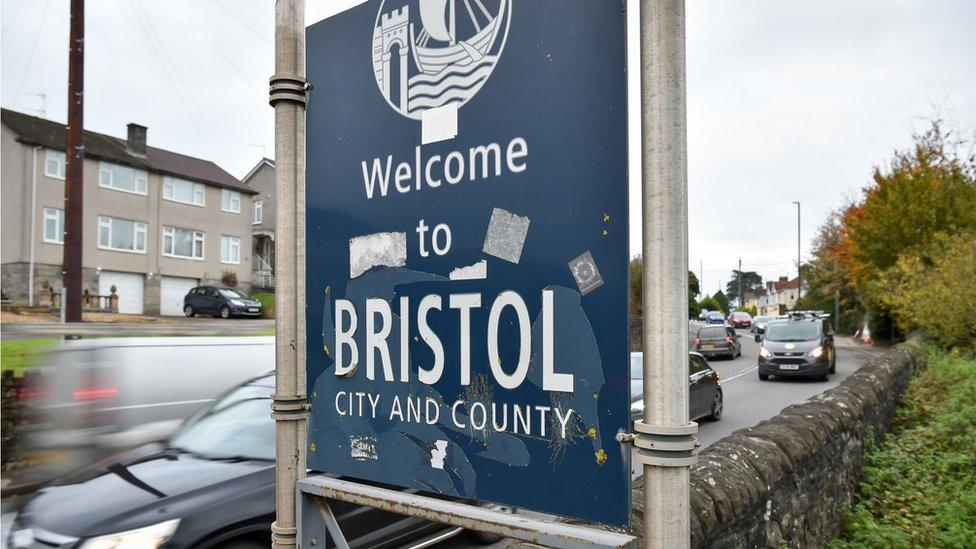Bristol council adds diesel vans to fleet despite ban
- Published
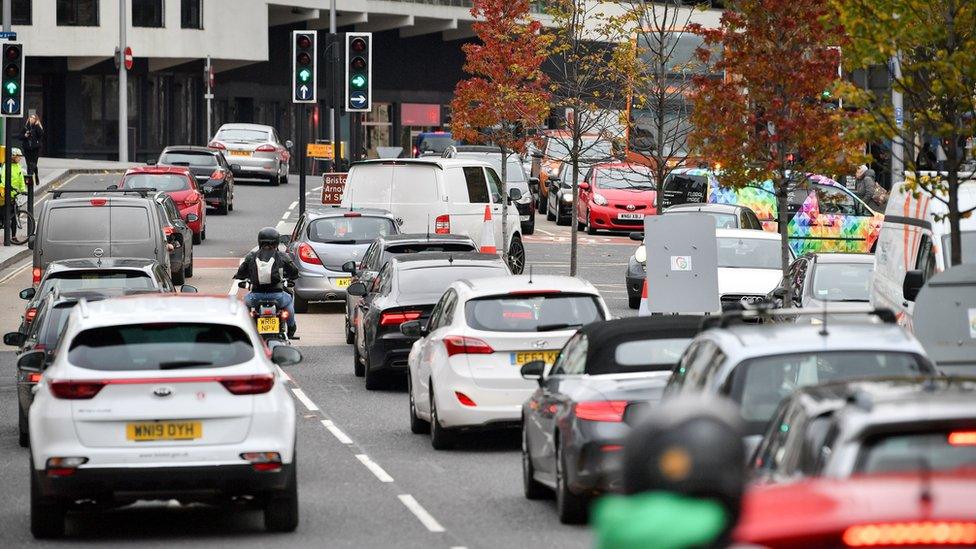
Bristol needs to reduce air pollution to meet legal limits
A council planning to ban people from driving diesel cars in a city centre has acquired dozens of the vehicles for its own fleet.
Bristol City Council has added 64 diesel-powered vans to its pool as part of an upgrade, a spokesman confirmed.
It was recognised that a diesel ban would "impact how that fleet operates in the future", he added.
The ban, which needs government approval, starts in 2021 and applies to privately-own diesel vehicles.
Older, more polluting commercial vehicles such as buses and taxis would be charged a fee to enter a wider clean air zone surrounding the ban area.
Bristol's rollout of 135 new vehicles - including the 64 diesel ones - is already underway.
The council is planning to buy 207 more, some of which are likely to be diesel while others will be electric, the spokesman said.
All the vehicles met current diesel and petrol emissions standards, he added.
'Widespread confusion'
Matt Griffith, director of policy for Business West, which is made up of local businesses, said the council was "perfectly entitled" to buy new diesel commercial vehicles which, under the scheme, would be allowed into the city centre.
But he said the move added to "widespread confusion about the scheme among the public and business".
"We think there is scope to make the scheme more flexible and easier to adapt to, and still deliver really big reductions in air pollution," he said.
"Unfortunately Bristol is being forced to act under a very constrained set of parameters from central government, which means small steps to make the scheme more workable are much harder."
You may also be interested in:
Bristol City Council is under a legal obligation to reduce air pollution in the city by lowering toxic NO2 levels to within legal limits as quickly as possible.
It is hoped the diesel ban will enable it to achieve clean air compliance by 2025.
- Published18 November 2019
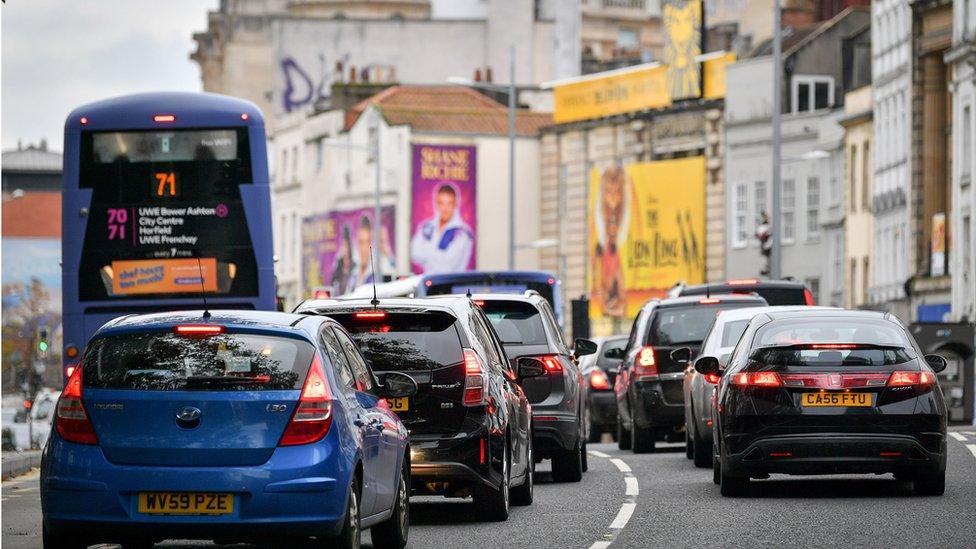
- Published29 October 2019
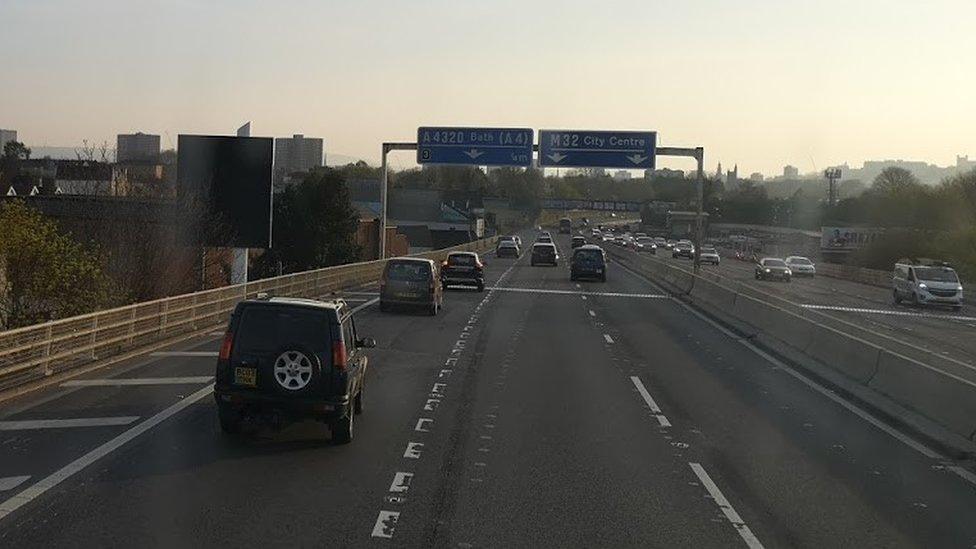
- Published5 November 2019
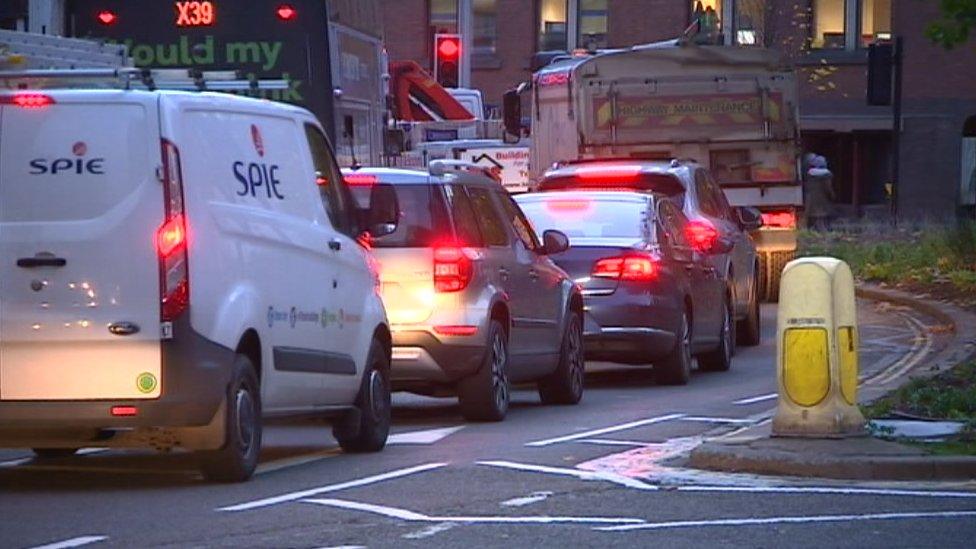
- Published6 November 2019
